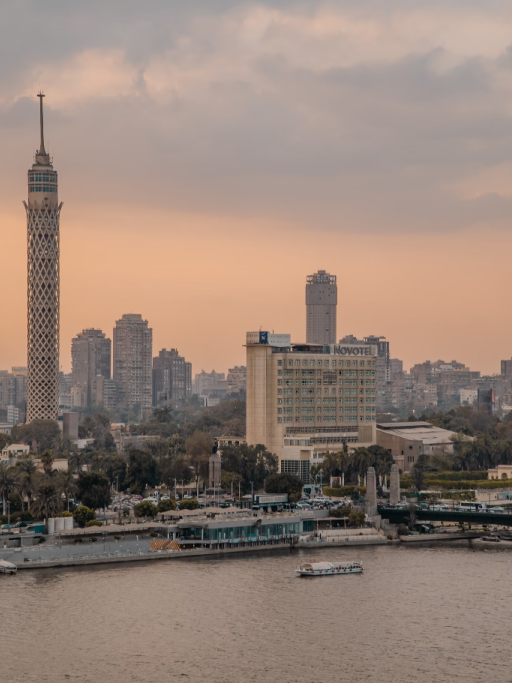Following a first collaboration for 10 African WOPs in 2013-2015, OFID (the OPEC Fund for International Development) and GWOPA (the Global Water Operators Partnerships Alliance) had entered, in 2019 a new Agreement to help five water and sanitation utilities in Africa and Asia, to implement Short Term Action Plans and develop Medium Term Sustainability Improvement Plans (SIP) through WOPs. The African Water Association (AfWA) and WaterLinks coordinated at regional level the implementation of the WOPs projects with the utilities involved. In Asia, 3 WOPs have been implemented : Chittagong Water Supply and Sewerage Authority (Bangladesh) with Suez India as a mentor, Khulna Water Supply and Sewerage Authority (Bangladesh) with Kota Surabaya, (Indonesia) as a mentor and Da Nang Water Supply Company (Vietnam) with Manila Water Company as a mentor (the Phillipines). In Africa, e-thekwini (South Africa) mentored both Blantyre Water Board (Malawi) and Sodo Town (Ethiopia).
During the 2.5-year long partnerships between the five pairs of utilities, “mentor” operators supported “mentees” with capacity development and change implementation in high-priority areas, ranging from improving billing and collection to energy efficiency, assembled in Short Term Action Plans (STAPs). The STAPs included originally a small investment component of 50,000 USD, such as a pilot project, to ignite long term changes towards sustainability.
Towards the end of the STAP implementation, the WOP partners conducted a more thorough joint analysis of the causes and potential solutions to their performance shortcomings and developed Sustainability Improvement Plans (SIPs) which would lay out a suite of longer-term improvement steps, combined with an investment component, to be implemented during a subsequent phase of improvement (lasting 3-5 years).
Throughout the process, the WOPs partners were supported by GWOPA to coordinate the partnering processes, on WOPs approaches and best WOPs practice; and with relevant technical training on themes requiring deeper learning. Key staff from participating operators shared their learning and showcased their experience through online Communities of Practice (CoPs) dedicated to various relevant technical issues and partnering issues as well, establishing bridges and fostering cross-fertilization between the regions.
The program was launched in May 2019, with a launching webinar and then a kick-off workshop in June 2019, organized in Barcelona, Spain, by GWOPA. Unfortunately, this was the last time GWOPA was able to hold an interregional workshop in presence of the participants, because of the Covid 19 pandemic. There were 2 intermediary interregional workshops held online, in November 2020, then October 2021 and eventually an online closing workshop in December 2021.
Project Description:
The projects all started with a diagnosis mission aiming at assessing the situation of the mentee utilities, discuss their challenges and identifying their priorities. GWOPA provided the SIP manual which guided the teams on the methodological approach for the planning of the projects. The mentees selected their priorities through participatory workshops and developed Short Term Action Plan on 3 to 4 working areas. Then the mentees visited their mentors to get some exposure on their good practices and working routines, and refined their STAP. Unfortunately at this stage, the emergence of the Covid 19 pandemic put an halt to the field visits and the teams couldn’t travel any more. They had to switch to online activities for the rest of the capacity building activities, training and monitoring of the implementation of the plans. This was quite challenging and the teams had to show some flexibility and resilience. The coordination work led by the facilitator was also much more intense as they had to lead the process of the transformation of field activities to online activities.
Action Plan:
Working Areas (WAs) | Operational challenges identified with mentor | Actions per STAP | Major Accomplishments |
Working Area 1: Non Revenue Water (NRW) |
|
|
Next Steps:
|
Working Area 2: Customer Accounts Management |
|
|
Next steps:
|
NRW Management:
Establishment of 2 pilot DMAs in Tutpara (1,998 customers) and Bastohara (950 customers)
Formation of KWASA NRW Team with 19 members
KWASA gained substantial knowledge in DMA Design, proper water balance calculation and NRW monitoring, improved network understanding including installation of equipment (data loggers, boundary valves, pressure meters) in the pilot DMA
Gained knowledge and experience in the confirmation of DMA boundaries with hydraulic modeling
Development and implementation of Standard Operating Procedures (SOPs) for DMA establishment and management
Completed customer survey and updating of customer records in the pilot DMAs
Customer Accounts Management:
Successfully procured smart meter reading app with mentors guidance on technical specifications
Gained knowledge on the use of smart meter reading app and its functionalities
Successful use and application of smart meter reading app in pilot areas with 4,500 customers starting Sept 2021
Completed the clean-up and update of customer database in the pilot areas including the removal of 2,477 inactive accounts
Survey and replacement of faulty meters in pilot DMAs to ensure proper meter reading and improved tariff collection
Gained knowledge in the preparation of financial reports, billing and collection, analysis of customer payment patterns, visualisation of financial data resulting in improvement of collection efficiency and billing rate by 10%
-Constant lockdowns due to the COVID 19 pandemic limited the movement of staff and made field work challenging (NRW monitoring , meter reading, survey of survey of customers)
-Shift to online activities of WOP required good internet connections which was sometimes problematic in Khulna
-Fieldwork required the strict observance of health protocols by wearing a mask, hand gloves, keeping a social distance, and using hand sanitizer adding some difficulty while conducting Zero Pressure Test (ZPT) and customer surveys consequently extending the period of completion
-Leak detection training could not be made because of the inability of mentors/mentees to travel
-High level of NRW, Lack of technical capacity on DMA management, Leak repair and meter installation.
-Difference between DBMS platforms (Oracle (Mentor) & MySQL (Mentee)) for implementation of Smart Meter Reading APPs development.
-Online trainings were conducted by Mentor due to Pandemic Covid-19 instead of direct physical attendance and interaction.
